Living in a Pandemic:
What difference can Sociology make to COVID-19?
In March 2020, the Director General of the World Health Organisation (WHO), Tedros Adhanom Ghebreyesus, stated in response to the COVID-19 pandemic: ‘We need our collective knowledge, insight and experience to answer the questions we don’t have answers to, and to identify the questions we may not even realize we need to ask’.
There are many unknowns in what has been described as a war, in this case with a microbe. We might assume that unrealised questions to address relevant unknowns will become unearthed in the quest to answer the most prominent: what will provide safe and efficacious therapeutics to assuage the severity of COVID-19; whether and, if so, there will be a protective vaccine; and what will be the effect and sustainability of current modes of infection containment. These questions follow from a biomedical lens on infection and the presupposition that the promise of a solution to our ills will be provided by the complex endeavours of the natural sciences.
However, biomedical solutions or, indeed, any strategies to contend with a communicable infection do not act on their own. To take effect, they must enter into our social relations and practices. The collection of journal articles and commentaries included on this page offers insight into the many ways in which Goldsmiths Sociologists are contributing to understandings of the multiple demands of Covid-19 and, most critically, how these demands might be rethought in ways that respond to a world not only of challenges but, also, possibles.
On this page:
-
Research Initiatives
-
Newspaper Articles
-
Blog Posts
-
Journal Articles and Book Chapters
-
Conference Participation
Research Initiatives
Mass Observation Directive on Covid-19 and Time
Launched August 2020
A specially commissioned Mass Observation directive on the theme of people’s everyday experiences of time during the unfolding pandemic. The directive will result in reflective diaries from Mass Observation diary writers spread across the UK, and will become part of the publicly available digital and physical archive. The directive was commissioned by Rebecca Coleman and Dawn Lyon (Kent) as part of a wider research project with Simon Bailey (Kent), Michelle Bastian (Edinburgh), Emily Grabham (Kent) and Dean Pierides (Stirling), A Day at a Time.
Conference Participation
Alberto Toscano, 20-30 May 2020
Alberto Toscano has worked on the next Historical Materialism annual international conference on the topic. He also participated in The Psychology of Global Crisis virtual conference.
A Community of the Unalike, Solidarity and Care Platform, The Sociological Review
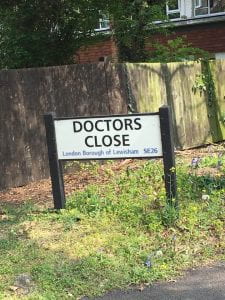 Yasmin Gunaratnam, 14 May 2020
Yasmin Gunaratnam, 14 May 2020
This blog post launched the End of Life Stories pages which include end of life pandemic stories. The End of Life Stories pages are hosted on the Sociological Review’s Solidarity and Care platform, a public research archive of the pandemic.
Methods Lab Resources Page
A resources page for students and researchers for doing research in the context of Covid-19.
Staff involved: Rebecca Coleman and Kat Jungnickel (Co-Directors of Methods Lab), Yasmin Gunaratnam, Sevasti-Melissa Nolas, Nirmal Puwar, Nina Wakeford
Global Critical Theory and the Covid-19 Pandemic
Alberto Toscano and Julia Ng (Co-directors of the Centre for Philosophy and Critical Thought (CPCT)) are currently planning a series of recorded talks for CPCT on ‘Global Critical Theory and the Covid Pandemic’, with speakers from across the globe, and seminars to accompany them.
Expert Group on an Ethical Framework for COVID-19 testing for NHS workers
Yasmin Gunaratnam is a member of the ‘Expert Group on an ethical framework for COVID-19 testing for NHS workers’ coordinated by The Healthcare Improvement Studies Institute (Cambridge).
The project is sponsored by the Department of Health and Social Care and is supported by the Wellcome Trust and the Academy of Medical Sciences. It is funded and led independently by THIS Institute.
Building on expert advice, using a consultative approach, and accounting for the views and concerns of the full range of relevant stakeholders, the project will develop recommendations for ethical framework to provide a practical guide to decision-making, serve the interests of transparency and trust, assure individuals (particularly those being asked to put themselves forward for testing) that their concerns have been heard, and offer the basis of an agreed, nationwide approach. Evidence will be gathered through a combination of review of relevant academic literature, guidance, and policy statements, and through consultative engagement.
Newspaper Articles
Reimagining the Frontline from Heaven’s Edge
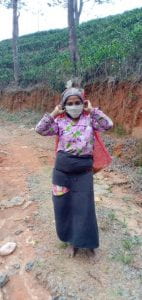 Yasmin Gunaratnam, New Politics, 6 May 2020
Yasmin Gunaratnam, New Politics, 6 May 2020
This article draws attention to the work on women-led trade unions for tea plantation workers and domestic workers in Sri Lanka and suggests that we need to reimagine our demands for Personal Protective Equipment through global care chains and the need for forms of Collective equipping that takes account of how labour in the Global South supplements care in the North.
Soap and Solace scarce as Sri Lanka’s tea pickers toil on amid lockdown
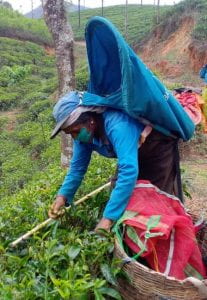 Yasmin Gunaratnam, The Guardian, 24 April 2020
Yasmin Gunaratnam, The Guardian, 24 April 2020
This article draws from work by the Red Flag plantation union in Sri Lanka that has been trying to ensure that the health and well-being of their members are being prioritised during the pandemic curfew. Sri Lanka’s police enforced curfew began on March 20, with an exemption for rice farmers, fishing and plantation workers. The union has been concerned about increased poverty, the difficulties with social distancing and the lack of facilities for workers to wash their hands with soap during shifts. The article led to a public petition calling for safeguards for tea plantation workers in Sri Lanka.
People who need end of life care shouldn’t have to die alone because of coronavirus
 Yasmin Gunaratnam, The Guardian, 17 April 2020
Yasmin Gunaratnam, The Guardian, 17 April 2020
This article draws from conversations with those working in end of life care in both health and social care and points to the difficulties that the pandemic is presenting for enabling palliative care principles to be applied. A real challenge has been the restrictions on visitors, which has meant people dying without their loved ones being present.
Of course we should fight to save lives – but those dying of coronavirus deserve to do so in dignity
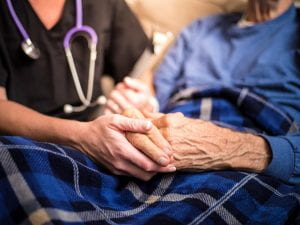 Yasmin Gunaratnam, Independent, 3 April 2020
Yasmin Gunaratnam, Independent, 3 April 2020
This article argues for the importance of embedding principles of palliative care into the care given to those patients and families who are dying of Covid-19.
Blog Posts
Brexit on ‘Plague Island’: Fortifying the UK’s Borders in Times of Crisis
Michaela Benson and Nando Sigona, The Sociological Review, 2nd February 2021
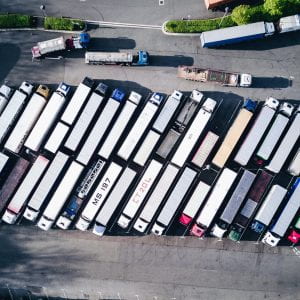 2021: not a day has passed where the borders haven’t made their presence felt in the news cycle. In this post, Michaela Benson and Nando Sigona reflect on how the coincidence of COVID and Brexit has produced a perfect storm, as public health concerns and necessary containment measures have become entangled with the emerging post-Brexit geopolitics, and often weaponised to score political points.
2021: not a day has passed where the borders haven’t made their presence felt in the news cycle. In this post, Michaela Benson and Nando Sigona reflect on how the coincidence of COVID and Brexit has produced a perfect storm, as public health concerns and necessary containment measures have become entangled with the emerging post-Brexit geopolitics, and often weaponised to score political points.
A Day at a Time: A Research Agenda to Grasp the Everyday Experience of Time in the Covid-19 Pandemic
 Rebecca Coleman, Discover Society, 15 September 2020
Rebecca Coleman, Discover Society, 15 September 2020
Throughout the unfolding pandemic, time is being made and re-made – from rapidly assembled household routines, to new working, school and caring patterns, to plans being put on hold and uncertainty about the future. In this blog post for Discover Society, Beckie Coleman and colleagues propose a research agenda for how we might understand and study time and Covid-19.
Churches to reopen with restrictions
 Abby Day cited in Ed Thornton, Church Times, 12 June 2020
Abby Day cited in Ed Thornton, Church Times, 12 June 2020
When the government announced as lockdown eased that churches would be allowed to open for ‘private prayer’, no one mentioned who would provide voluntary labour for those periods. The weekly international Anglican newspaper, the Church Times, asked for my views and I argued that either they would have few volunteers to help, or they would be the increasingly vulnerable elderly members.
Coronavirus And Changing Conditions For Crime
 Jennifer Fleetwood, John Lea, Svenja Bromberg and Theo Kindynis, Discover Society, 13 May 2020
Jennifer Fleetwood, John Lea, Svenja Bromberg and Theo Kindynis, Discover Society, 13 May 2020
A quick response to debates about crime changing under coronavirus. This came from weekly, online meetings of a reading group located within the Sociology Department.
The Covid-19 Crisis and the end of the low-skilled worker
 Sara Farris and Mark Bergfeld, Spectre Journal, 10 May 2020
Sara Farris and Mark Bergfeld, Spectre Journal, 10 May 2020
In this response, the authors analyse the semantic shift that has occurred during the Covid-19 pandemic in the western media in portraying low-pay, low-skill workers as essential, or key workers. Such a shift interrogates us on the link between skills, education and social needs at the heart of the division of labour in society. The article has been translated into French, Italian and Dutch, and was quoted in a Guardian article on May 26, 2020.
Unpacking and Undoing “the Crisis”: Database Activism for Strange Times
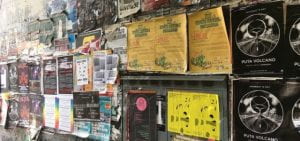 Sevasti-Melissa Nolas, Discover Society, 6 May 2020
Sevasti-Melissa Nolas, Discover Society, 6 May 2020
The Covid-19 pandemic has seen a burgeoning of online databases, repositories and archives being created across the social sciences, as well as the heritage sector. In this piece Melissa Nolas and colleagues, drawing on their experience of archiving social science research of a different ‘crisis’, raise questions about what such databases, repositories and archives might do in a crisis and why they are important.
The yearning for crisis
Monica Greco, 5 May 2020
The yearning for crisis is a piece written in response to an invitation from Benjamin Mayer Foulkes, director of the Mexico-based 17, Instituto de Estudio Criticos. The invitation came at the height of lockdown in the UK, at a time when the sweep of the virus was hitting Europe hard, and looming darkly over the horizon of Latin America. By the time Greco wrote the piece it was the end of April: the WHO would declare the Americas to be the new epicentre of the pandemic on the 26th of May.
Covid-19: asymptomatic infection and the question of face masks for how we live this pandemic
 Marsha Rosengarten, Kari Lancaster & Tim Rhodes, Discover Society, 29 April 2020
Marsha Rosengarten, Kari Lancaster & Tim Rhodes, Discover Society, 29 April 2020
Drawing from the situated affordance provided by condoms in response to HIV, we suggest that a pragmatic take up of face masks within the UK could make a difference to a situation that has so far called for ‘self-isolation’ and ‘social distancing’.
A “Good Citizen” for Pandemic Times
 Michaela Benson, Discover Society, 16 April 2020
Michaela Benson, Discover Society, 16 April 2020
This blog post examines the politics of who is and isn’t understood as a ‘good citizen’. It pays particular attention to the role of social and moral judgements in processes of discrimination and how they are located within longer histories of policing, surveillance, bordering and belonging.
On Social Reproduction and the Covid-19 Pandemic
 The Marxist Feminist Collective, including Sara Farris and Svenja Bromberg, Spectre Journal, 3 April 2020
The Marxist Feminist Collective, including Sara Farris and Svenja Bromberg, Spectre Journal, 3 April 2020
A series of 7 theses on the relationships between social reproduction and the pandemic, from the organisers of the Marxist Feminist Stream at the Historical Materialism Conference.
When Doctors Die
 Yasmin Gunaratnam, Discover Society, 30 March 2020
Yasmin Gunaratnam, Discover Society, 30 March 2020
This article was written when the death of a second doctor from a minority ethnic group was announced, in the early stages of the English pandemic. It points to the need to understand the deaths within the broader context of racism and occupational inequalities within the NHS.
Journal Articles and Book Chapters
COVID-19 Diagnoses: A source of immanent value and novelty
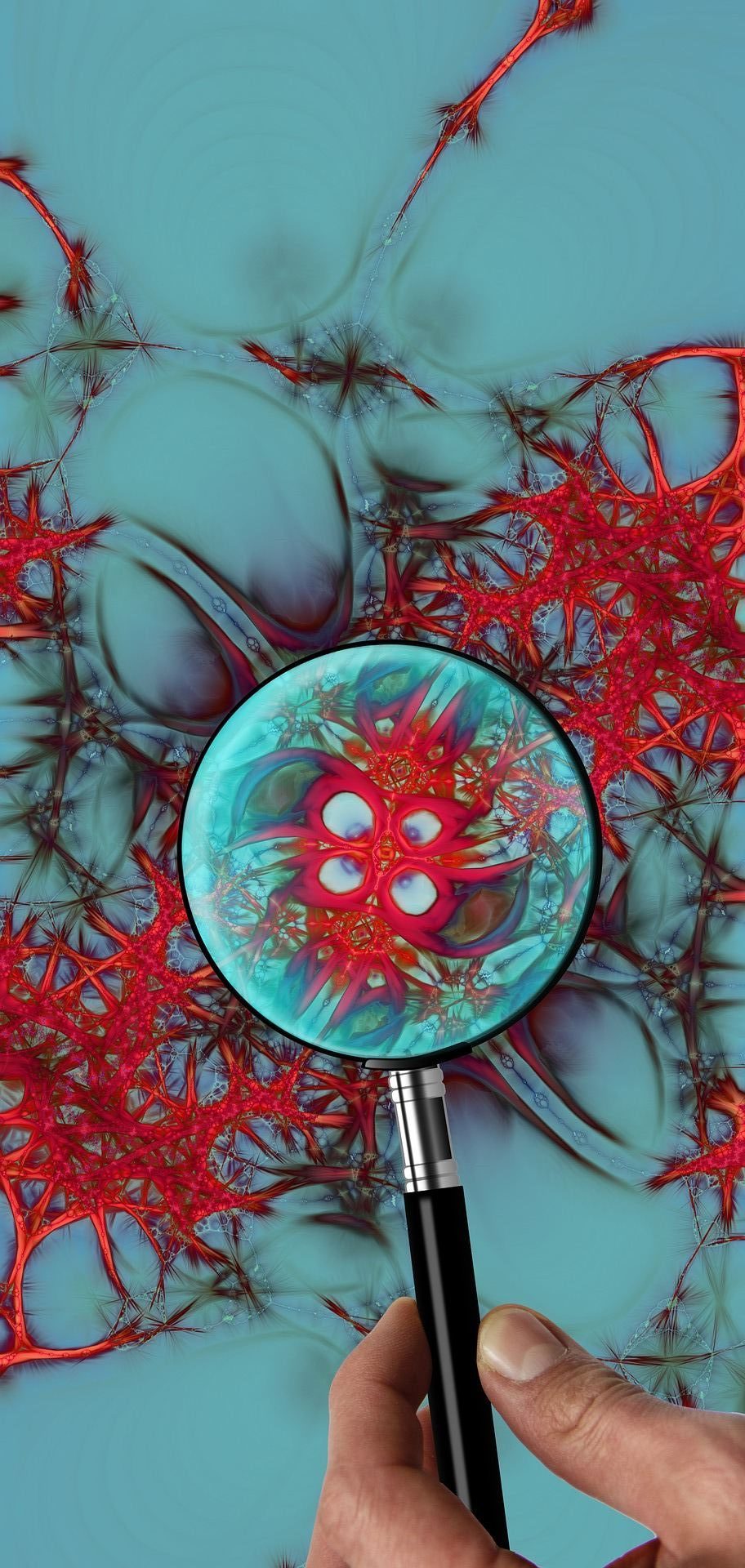 Marsha Rosengarten, Medicine Anthropology Theory, 2021
Marsha Rosengarten, Medicine Anthropology Theory, 2021
This position piece asks: what might be afforded to the problematic diagnosis of communicable infection and to global health strategies of containment if the body were appreciated as an active participant in diagnoses? Drawing on a series of empirical examples primarily focused on the perceived novelty of COVID-19, it offers a preliminary sketch of how revaluing the body as involved in decision-making and novelty might enrich the scope of biomedical and social diagnoses.
COVID-19 Secure Guidance: Organizational Decision Making and Politics in a Public Health Crisis
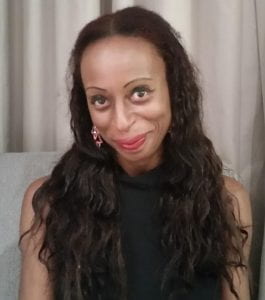 Pamela Odih, Journal of Ergonomics, 2021
Pamela Odih, Journal of Ergonomics, 2021
Primarily informed by a critical realist approach to the politics of organizational decision-making this article identifies limitations in rational choice theory, coupled with gender blind technological determinism, as insufficiently recognised determinants of compliance with COVID-19 secure workplace guidance.
Sensory Power: How a pandemic made it visible
 Engin Isin and Evelyn Ruppert, Big Data & Society, 2020
Engin Isin and Evelyn Ruppert, Big Data & Society, 2020
This article argues that the coronavirus pandemic in 2020 has brought forms of power into sharp relief but made particularly visible a fourth form that we name ‘sensory power’.
The Challenge of Breath: Toward an “after” COVID-19
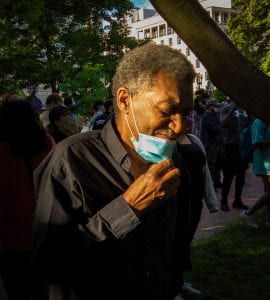 Marsha Rosengarten, Social Anthropology /Anthropologie Sociale, 2020
Marsha Rosengarten, Social Anthropology /Anthropologie Sociale, 2020
This short piece proposes that if we are to contemplate an ‘after’ to COVID-19, including the anticipation of a future of more novel deadly infections, our collective connectiveness of breath, its creative preciousness and, thus, also its precariousness may provide cause for a pause in the atomistic logic of scientific thought and, thus, invite new modes of learning.
A model society: Maths, models and expertise in viral outbreaks
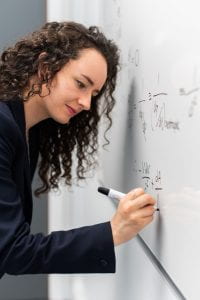 Rhodes, T., Lancaster, K. & Marsha Rosengarten, Critical Public Health, 2020
Rhodes, T., Lancaster, K. & Marsha Rosengarten, Critical Public Health, 2020
We trace how COVID-19 is coming to be known in maths and models not only in policy but in media stories of maths, mathematicians and models. We accentuate the social life of maths and models, which feed citizen science and social actions in relation to COVID-19. This article suggests that there are general lessons from the emergent evidence-making of COVID-19 for how we do science for public health.
Making evidence and policy in public health emergencies: Lessons from COVID-19 for adaptive evidence-making and intervention
Rhodes, T., Lancaster, K. & Marsha Rosengarten, Critical Public Health, 2020
The unprecedented challenges of novel viral outbreaks like COVID- 19 do not simply require us to speed up existing evidence-based approaches, but necessitate new ways of thinking about how a more emergent and adaptive evidence-making might be done. There are important lessons for how evidence and intervention co-emerge in social practices, and for how evidence-making and intervening proceeds through dialogue incorporating multiple forms of evidence and expertise. Read more here.
Beyond the Plague State
Alberto Toscano, in Between the Lines Editorial Committee (eds), Sick of the System: Why the COVID-19 recovery must be revolutionary. Toronto: Between the Lines Books, 2020
An Italian translation of this piece has come out on the website of the Italian magazine Micromega, under the title ‘La peste e lo stato‘ [The Plague and the State]. Alberto Toscano has also given a relevant talk in Spanish for a Glossary of the Pandemic, published by Madrid’s Circulo de Bellas Artes (a text version is also to be published).
Conference Participation
Thinking with Microbes – a seminar series on infection, disease and finitude
The Centre of Invention and Social Process (CISP) will be holding an online seminar series in the later part of 2020
Prevailing ideas around the autonomous self are being revised in the field of biology. No longer framed as the study of self-contained entities, biology increasingly appreciates ‘individual’ animals as organised multispecies consortias living in symbiotic commune. This ecological shift in the biological sciences is also paralleled by a similar turn to the ‘non-human’ in the social sciences and humanities, and can be seen more specifically in the work of scholars affiliated with philosophical Posthumanism and other related and cognate fields such as human-animal studies, political ecology, new materialisms and multispecies ethnography. Focusing on human entanglements and dependencies with insects (Beisel, Kelly, & Tousignant, 2013; Raffles, 2010), dogs (Haraway, 2008; Kohn, 2007), meerkats (Candea, 2010), forests (Kohn, 2013), plants (Hustak & Myers, 2012) and matsutake mushrooms (Tsing, 2015), scholars have interrogated anthropocentrism by illustrating the myriad of ways in which the world we inhabit and what we are, only comes-into-being through multispecies engagements. Anthropologist and multispecies scholar, Stefan Helmreich (2014), proposes for example, that the human, Homo sapien be reconceptualised as Homo microbis, a fleshy assemblage co-produced with and through messy entanglements with our more-than-human microbial companions whom we share the world with.
As a means of thinking through the pragmatics of being kin with more-than-human others, such research has thus far tended to focus on commensal or at the very least, non-lethal others as a means of illustrating symbiotic relations that challenges the idea of human exceptionalism and atomistic self-sufficiency. From helminths to gut bacteria to palm trees and sheep, living with these more-than-human others may be problematic and inconvenient at times, but very rarely do they pose a direct threat to human life. Yet, the recent emergence of COVID-19 raises a different set of questions related to finitude – both for the virus, and for us humans. What might it mean to embrace an ‘unloved’ and ‘unloving’ other, if doing so also simultaneously threatens to obliterate one’s very own existence? Faced with a lethal and omnipresent microbe, how do we reckon with the kinds of biopolitical and microbiopolitical calculations needed to reassemble modern life? Is the eradication and/or elimination of such unfavourable microbes the only way forward? Untethered from the drive towards eradication, what then might microbes and infectious diseases have to teach us about different ways of wading through viral clouds, uncertain episto-ontological projects and proliferating utopian and apocalyptic futures?
